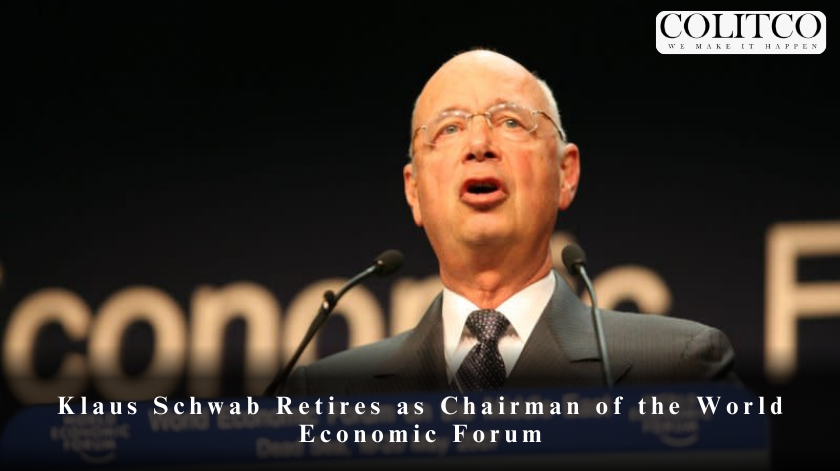Klaus Schwab, the founder and long-serving chairman of the World Economic Forum (WEF), is stepping down after more than 50 years at the helm of the global organization he created. His departure marks the end of an era for the Geneva-based think tank known for its annual gatherings of world leaders, business executives, and academics in Davos, Switzerland.
Stepping Down After 55 Years of Leadership
Schwab, now 87, made the announcement through a statement released by the WEF on Monday, confirming his resignation “with immediate effect.” For over five decades, Schwab was the face of the Forum, shaping it into a high-profile platform that brought together influential figures to address major global challenges including climate change, economic inequality, and technological disruption.
Under Schwab’s leadership, the WEF became synonymous with the Davos meeting—an annual January event where politicians, corporate leaders, philanthropists, and intellectuals converge to exchange ideas and shape global policy discussions.
Peter Brabeck-Letmathe Named Interim Chairman
Following Schwab’s resignation, the Forum’s board convened a special meeting on Sunday to select an interim replacement. Peter Brabeck-Letmathe, the former chairman and CEO of Nestlé, was unanimously appointed interim chairman. Brabeck-Letmathe is widely respected for his international business expertise and long-standing relationship with the Forum.
The WEF also confirmed that a search committee has been established to identify Schwab’s permanent successor. No timeline has been provided for the appointment of a new chair.
Also Read: Race to Succeed Pope Francis Gains Global Attention
A Global Stage for High-Level Dialogue
Founded in 1971, the World Economic Forum began as the European Management Forum. Schwab envisioned it as a neutral space where business and political leaders could collaborate on solutions to global issues. Over the years, it expanded its focus to include social, environmental, and technological topics, rebranding as the World Economic Forum in 1987.
The Forum’s most iconic event remains the Davos summit, where participants have included the likes of China’s Xi Jinping, Russia’s Vladimir Putin, the U.S.’s Donald Trump, and Germany’s Angela Merkel. The conference has also hosted influential business leaders like Bill Gates, Elon Musk, and Larry Fink, offering a unique platform for public-private cooperation.
Despite its prestige, the Forum has not been without criticism. Some have accused it of being an elite gathering disconnected from the average citizen, while others have questioned its actual impact on solving global problems. Nevertheless, Schwab consistently defended the Forum as a platform for inclusive and constructive dialogue.
Schwab’s Legacy: Stakeholder Capitalism
One of Schwab’s most significant contributions to global economic thought is the concept of stakeholder capitalism—the idea that businesses should serve the interests not only of shareholders but also of employees, communities, and the environment. This philosophy has gained traction, especially amid increasing scrutiny of corporate behavior and its broader social impacts.
Schwab was also instrumental in pushing forward the Fourth Industrial Revolution agenda, which emphasized the need to govern emerging technologies like artificial intelligence, blockchain, and gene editing with ethical foresight.
In addition to his leadership of the Forum, Schwab authored several books and served as a mentor and advisor to many world leaders and business executives.
Looking Ahead: A Pivotal Transition
As Schwab exits the stage, the WEF faces a changing world. Geopolitical tensions, economic instability, climate crises, and rapid technological advances have reshaped the global landscape. The Forum must now find a new leader capable of maintaining its relevance and convening power in this complex environment.
Brabeck-Letmathe, as interim chair, is expected to provide stability during this transitional phase. Known for his strategic thinking and diplomacy, he may also play a role in shaping the Forum’s future direction beyond the transition.
In a statement, the WEF emphasized its ongoing mission: “At a time when the world is undergoing rapid transformation, the need for inclusive dialogue to navigate complexity and shape the future has never been more critical.”
Conclusion
Klaus Schwab’s departure from the World Economic Forum marks the close of a remarkable chapter in global policy and economic collaboration. His vision helped establish the Forum as a premier venue for shaping international agendas. As the organization looks to the future, the world watches to see who will inherit the responsibility of guiding the WEF through its next phase.












